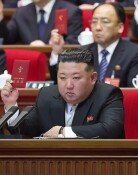[Opinion] Koreas Capital Outflow
[Opinion] Koreas Capital Outflow
Posted October. 09, 2006 07:08,
The foreign investment tendency announced by the Korea Exchange (KRX) everyday is a necessity to investors. This is because foreigners own a whopping 37.6 percent of domestic stocks based on aggregate value of listed stocks. It can be said that foreigners, who own Korean stocks, can yield a big influence in the market. There are many ant investors who were able to enjoy profits simply by following foreign investors However, since March, many of the foreign investors are selling their stocks. Among the Asian countries, Korea is the only place where capital from the U.S and Britain is leaving.
From the beginning of 2006, as much as 9.5213 trillion won of foreign capital left the Korean stock market. This means that almost 50 billion won flowed out of Korea everyday. Most of the foreign investors were able to receive marginal profits. Hedge funds, or speculative capital, left Korea. Also, some mutual funds left Korea. This kind of exodus may be attributed to Industrial and Commercial Bank of China (ICBC). ICBC is just about to go public in October 27. It is said that the scale of it will be the worlds largest, which is up to $19 billion, or 18 trillion won. Against this backdrop, it will be right to say that most of investors are focusing on China.
However, outside factors cannot be a full explanation. Koreas economy shows no sign of revitalizing and many people feel hostile about foreign capital. On top of that, North Korea has announced that it will carry out a nuclear test. All of these are reasons for foreigners to feel reluctant to invest in Korea. Stock experts say, Some Koreans simply expect that foreign investors will stop selling Korean stocks after ICBC goes public Many wonder if Koreans will be able to listen President Roh insisting that the economy is in good shape according to the high stock index.
The Foreign Direct Investment (FDI) is dwindling too. Only $7.5 billion came into Korea until September. It is a 2.3 percent decrease when compared to the same period last year. The explanation is that even though many foreign companys factories were built in Korea, major M&As increased dramatically. Also, being hostile against foreign capital is pointed out as a reason. FDI is known as one of the main events in the Economic Olympic Games, where many countries compete against each other to attract foreign capital. Even though Korea reaches its $11 billion goal this year, it will be impossible to pass the Asian preliminary match since it will be a decrease in FDI for two years in a row. Meanwhile, other countries are coming up with deregulations, company-friendly environment, and are attracting top class CEOs and they are getting all the good capital and jobs.
Hong Gwon-hee, Editorial Writer, konihong@donga.com







